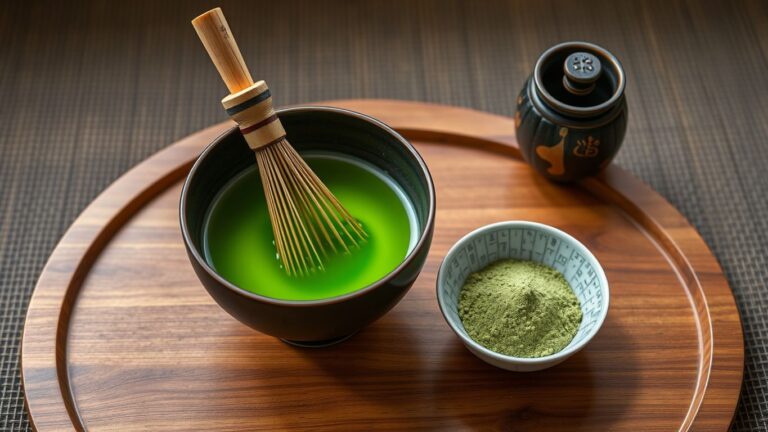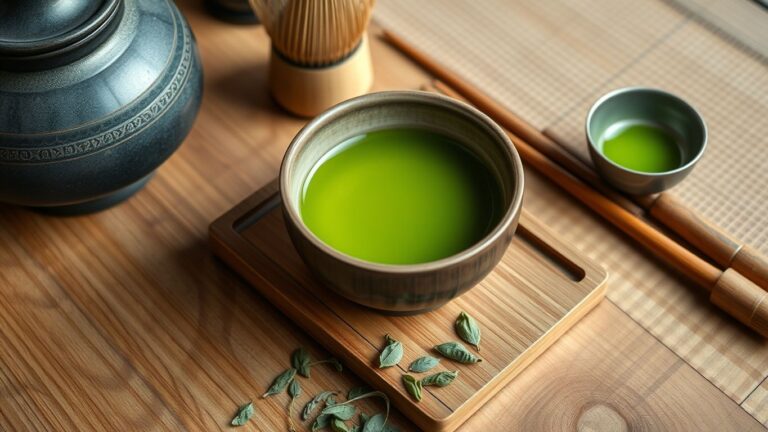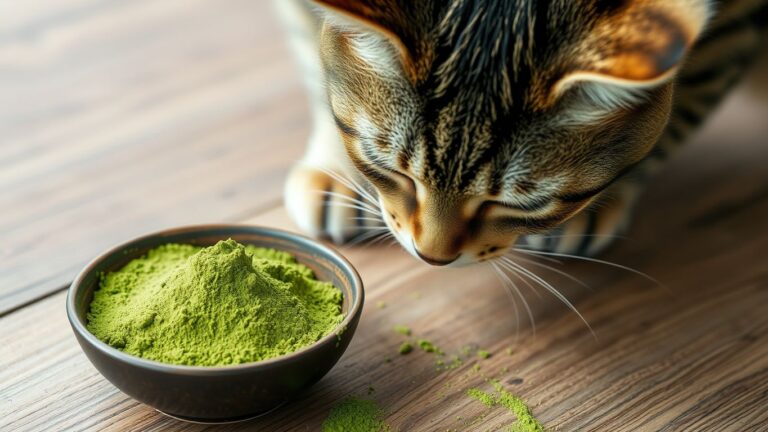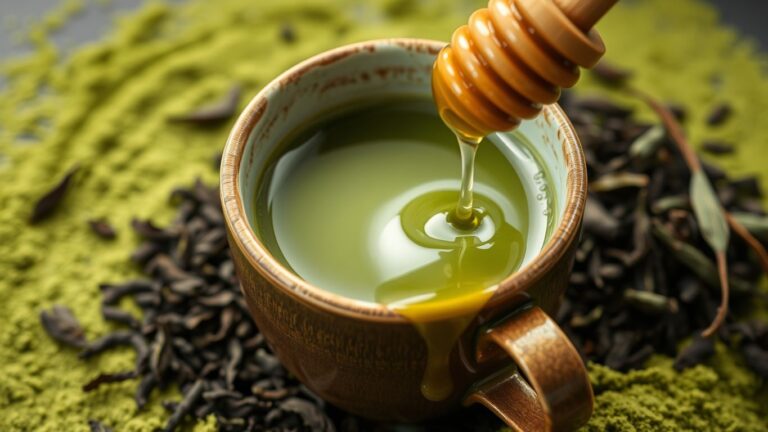Matcha tea has become incredibly popular, especially among those who are health-conscious. This bright green tea from Japan is famous for its unique taste and numerous health benefits. But, one question that often comes up is whether matcha tea acts as a diuretic. To understand this, we need to look at its components, benefits, and how it affects hydration.
Key Takeaways
- Matcha tea contains caffeine, which can have mild diuretic effects by increasing urine production.
- Unlike regular green tea, matcha involves consuming the whole leaf, which boosts its nutritional benefits.
- Matcha is not as strong a diuretic as coffee or certain herbal teas like dandelion.
- The water content in matcha tea helps counterbalance its mild diuretic effects, aiding in hydration.
- Drinking matcha in moderation is generally safe and offers various health benefits, including antioxidants and nutrients.
The Basics of Matcha Tea

What is Matcha?
Matcha is a type of Japanese green tea that is made from finely ground tea leaves. Unlike other teas, you consume the whole leaf, which means you get more nutrients. Matcha has a slightly nutty, grassy flavor with a hint of bitterness. Its vibrant green color is due to the high chlorophyll content.
How is Matcha Made?
The process of making matcha starts weeks before harvest. The tea plants are grown in the shade to increase chlorophyll levels. After harvesting, the leaves are quickly dried to prevent oxidation and then ground into a fine powder. This method preserves the tea’s nutrients and gives matcha its unique flavor.
Nutritional Profile of Matcha
Matcha is packed with nutrients. It contains vitamins A, C, and E, as well as minerals like potassium and calcium. One cup of matcha has more antioxidants than 30 cups of regular green tea. These antioxidants help fight free radicals in your body, promoting overall health.
Matcha isn’t just a trendy drink; it’s a powerhouse of nutrients that can benefit your health in many ways.
Understanding Diuretics
What Are Diuretics?
A diuretic is any substance that increases the flow of urine. Diuretics help the body remove excess water, salts, and other unwanted substances. They are often used to treat conditions like high blood pressure, swollen tissues, and kidney problems. Many natural foods and drinks can act as diuretics, including certain teas, fruits, and vegetables.
Common Types of Diuretics
There are several types of diuretics, each working in a different way:
- Thiazide Diuretics: Often used to treat high blood pressure.
- Loop Diuretics: Typically used for conditions like heart failure.
- Potassium-Sparing Diuretics: Help the body retain potassium while removing excess fluid.
Natural diuretics include caffeine, alcohol, and herbs like dandelion and parsley.
How Diuretics Work
Diuretics work by affecting the kidneys, causing them to release more sodium into the urine. The sodium takes water with it, which increases the amount of urine. This process helps to remove excess fluid from the body, which can reduce swelling and lower blood pressure.
It’s important to talk to a doctor before changing your intake of diuretic foods or drinks, as too much fluid loss can lead to mineral depletion.
Caffeine Content in Matcha
Caffeine Levels in Matcha
Matcha tea contains a moderate amount of caffeine. On average, matcha has approximately 20-45mg of caffeine per gram. A typical serving size of matcha is about 2-4 grams, which means you get around 40-180mg of caffeine per serving. This amount can vary based on the quality and preparation of the matcha.
Comparing Caffeine in Matcha and Coffee
When comparing matcha to coffee, the caffeine content is quite different. A standard cup of coffee contains about 90-125mg of caffeine, while a serving of matcha has much less. This makes matcha a great alternative for those who want a caffeine boost without the jitters often associated with coffee.
Effects of Caffeine on the Body
Caffeine acts as a stimulant for the brain and body. It helps you feel more awake and alert. However, the caffeine in matcha is released more slowly into the bloodstream, providing a more sustained energy boost. This slow release is due to the presence of L-theanine, an amino acid that promotes relaxation without drowsiness.
Matcha offers a balanced way to enjoy caffeine, giving you energy without the crash that often follows a cup of coffee.
Matcha Tea and Hydration

Hydration Benefits of Matcha
Matcha tea is not just a delicious drink; it also has hydration benefits. The water content in matcha helps keep you hydrated, countering any mild diuretic effects from its caffeine. Imagine the vibrant green hills of Uji in a shaker. Each sip is mellow and refreshing, crafted to bring you the fresh taste of green tea without any caffeine.
Does Matcha Cause Dehydration?
While matcha contains caffeine, which can have mild diuretic effects, it is primarily composed of water. This means that drinking matcha can actually help with hydration rather than causing dehydration. The presence of water in matcha tea may help counterbalance any diuretic effects, contributing positively to fluid intake.
Balancing Caffeine and Hydration
Balancing the caffeine in matcha with its hydrating properties is key. The amino acids in matcha, like L-theanine, help promote relaxation and balance the stimulating effects of caffeine. This synergy can reduce any potential negative impacts, such as excessive urination or dehydration, often associated with stronger diuretics.
Matcha tea offers a unique combination of hydration and mild diuretic effects, making it a balanced choice for those looking to stay hydrated while enjoying a caffeinated beverage.
Comparing Matcha to Other Diuretics
Matcha vs. Coffee
When comparing matcha tea to coffee, the caffeine content is a key factor. Coffee is well-known for its strong diuretic effect, mainly due to its higher caffeine levels. In contrast, matcha provides a more gradual caffeine release, which might result in milder diuretic effects. If you’re sensitive to caffeine, matcha could be a gentler option with fewer unwanted urinary side effects.
Matcha vs. Herbal Diuretics
Herbal diuretics like dandelion and nettle are often used for their potent diuretic properties. These herbs can promote significant urine output and fluid loss. While matcha contains caffeine and catechins that may offer mild diuretic effects, it doesn’t match the strength of these herbal diuretics.
Effectiveness of Matcha as a Diuretic
Overall, matcha tea is not considered a strong diuretic. While it does contain elements that can promote urine production, its effects are relatively mild. Most people can enjoy matcha without worrying about dehydration. Instead, matcha is better viewed as a hydrating beverage rich in antioxidants and nutrients.
Matcha tea offers a balanced approach to hydration and mild diuretic effects, making it a suitable choice for those looking for a gentle alternative to stronger diuretics.
Health Benefits of Matcha

Antioxidant Properties
Matcha is rich in catechins, a type of antioxidant that helps stabilize harmful free radicals. These free radicals can damage cells and lead to chronic diseases. Including matcha in your diet can boost your antioxidant intake, potentially lowering your risk of several chronic conditions.
Impact on Metabolism
Drinking matcha may help boost your metabolism. The catechins in matcha have been linked to increased fat burning, which can aid in weight management. This makes matcha a great addition to a healthy lifestyle.
Potential Weight Loss Benefits
Matcha can be a helpful tool for weight loss. It not only boosts metabolism but also helps curb hunger. Drinking matcha can keep you feeling full longer, reducing the urge to snack throughout the day.
Matcha is a versatile and healthy addition to your diet, offering numerous benefits from antioxidants to weight management.
Potential Side Effects of Matcha
While matcha tea offers numerous health benefits, it’s essential to be aware of its potential side effects. Consuming matcha in moderation can help you avoid these issues.
Caffeine Sensitivity
Matcha contains caffeine, which can make you feel jittery and anxious, especially if you’re not used to it. Some people are more sensitive to caffeine than others, so it’s best to start with a small amount and see how your body reacts.
Digestive Issues
The caffeine and other compounds in matcha can cause stomach discomfort for some people. This might include symptoms like an upset stomach, diarrhea, or constipation. If you experience these issues, consider reducing your intake.
Interactions with Medications
Matcha can interact with certain medications, particularly those that contain caffeine. If you’re taking medication, it’s a good idea to consult your healthcare provider before adding matcha to your diet.
It’s always best to consume matcha in moderation to avoid unpleasant side effects. If you have any concerns, consult a healthcare professional.
Here’s a quick summary of potential side effects:
- Caffeine Sensitivity: Jitteriness, anxiety
- Digestive Issues: Upset stomach, diarrhea, constipation
- Interactions with Medications: Consult your healthcare provider
Scientific Studies on Matcha and Diuresis

Research on Matcha’s Diuretic Properties
Research on the beneficial effects of green tea has shown that matcha, a type of green tea, may have mild diuretic properties. This is mainly due to its caffeine content, which can stimulate the kidneys to produce more urine. However, the diuretic effect of matcha is generally considered to be mild compared to other substances.
Studies on Caffeine and Diuresis
Caffeine is a well-known diuretic, and several studies have explored its impact on urine production. These studies suggest that while caffeine can increase urine output, the effect is not strong enough to cause dehydration in most people. This is important to consider when evaluating matcha, as its caffeine content is lower than that of coffee.
Limitations of Current Research
While there is some evidence to suggest that matcha may have diuretic properties, the research is still limited. Most studies focus on the effects of caffeine rather than matcha specifically. More research is needed to fully understand how matcha affects diuresis and whether it can be considered a significant diuretic.
It’s important to remember that while matcha may have some diuretic effects, it is also rich in antioxidants and other nutrients that offer various health benefits.
Practical Tips for Consuming Matcha
How to Prepare Matcha
Preparing matcha is simple and can be done in various ways. For a traditional matcha tea, sift 1–2 teaspoons (2–4 grams) of matcha powder into your cup, add 2 ounces (59 ml) of hot water, and mix it with a bamboo whisk. You can adjust the ratio of matcha powder to water based on your preferred consistency. For a thinner tea, use half a teaspoon (1 gram) of matcha powder and mix with 3–4 ounces (89–118 ml) of hot water. For a more concentrated version, combine 2 teaspoons (4 grams) of powder with just 1 ounce (30 ml) of water.
Best Times to Drink Matcha
The best time to drink matcha depends on your goals. For a morning energy boost, enjoy it early in the day. As a pre-exercise ritual, matcha serves as a natural energizer, enhancing your workout sessions. If you’re sensitive to caffeine, avoid drinking matcha late in the day to prevent sleep disturbances.
Recommended Daily Intake
While matcha has many benefits, it’s best to consume it in moderation. Sticking to two cups of matcha a day or less will help you avoid potential side effects like increased heart rate or digestive issues. If you’re new to matcha, start with a smaller amount and gradually increase your intake as your body adjusts.
Matcha in Your Daily Routine
Incorporating matcha into your daily routine can provide a multitude of health benefits, from boosting metabolism and enhancing mood to supporting heart health. Here are some practical tips to help you seamlessly add matcha to your day-to-day life.
Incorporating Matcha into Meals
Matcha is incredibly versatile and can be added to a variety of dishes. You can sprinkle it over your morning oatmeal, blend it into smoothies, or even use it in baking recipes like cookies and cakes. Incorporating matcha into your meals not only enhances the flavor but also boosts the nutritional value.
Matcha Recipes to Try
Here are a few simple and delicious matcha recipes to get you started:
- Matcha Latte: Mix 1 teaspoon of matcha powder with hot water and add steamed milk. Sweeten to taste.
- Matcha Smoothie: Blend 1 teaspoon of matcha powder with a banana, a handful of spinach, and a cup of almond milk.
- Matcha Pancakes: Add 1 teaspoon of matcha powder to your pancake batter for a green twist on a breakfast classic.
Balancing Matcha with Other Beverages
While matcha is a great addition to your diet, it’s important to balance it with other beverages. Make sure to drink plenty of water throughout the day to stay hydrated. You can also enjoy matcha alongside other healthy drinks like herbal teas and fresh juices.
Remember, incorporating matcha into your daily routine can provide a multitude of health benefits, from boosting metabolism and enhancing mood to supporting heart health. So why not give it a try and see how it can improve your overall well-being?
Conclusion
In summary, while matcha tea does have some mild diuretic effects due to its caffeine content, it is not a strong diuretic. Most people can enjoy matcha without worrying about dehydration. Instead, matcha is a hydrating drink that is packed with antioxidants and nutrients, offering numerous health benefits. So, feel free to sip on your matcha and enjoy its unique flavor and health perks without much concern.
Frequently Asked Questions
What is matcha tea?
Matcha tea is a type of green tea made from leaves that are grown in the shade and then ground into a fine powder. Unlike regular green tea, you consume the entire leaf, which means you get more nutrients and antioxidants.
Can I drink matcha tea every day?
Yes, you can drink matcha tea daily. However, it’s important to do so in moderation due to its caffeine content.
Does matcha tea dehydrate you?
Matcha tea contains caffeine, which can have mild diuretic effects. However, since it is mostly water, it generally helps with hydration rather than causing dehydration.
How does matcha tea compare to regular green tea?
Matcha tea has more nutrients and antioxidants compared to regular green tea because you consume the whole leaf. It also has a different flavor and is prepared differently.
Are there any side effects of drinking matcha tea?
Some people may experience side effects like headaches or digestive issues due to caffeine sensitivity. It’s best to drink it in moderation to avoid these problems.
Can matcha tea help with weight loss?
Matcha tea may help with weight loss by boosting metabolism and promoting fat burning. However, it should be part of a balanced diet and exercise routine.
Is it safe to drink matcha tea while taking medications?
If you are taking medications, it’s best to consult your doctor before adding matcha tea to your diet, as it can interact with certain medications.
What is the best way to prepare matcha tea?
To prepare matcha tea, mix one teaspoon of matcha powder with hot water (not boiling) and whisk until it becomes frothy. You can also add milk or sweeteners if you prefer.






